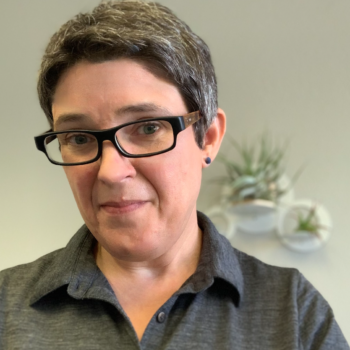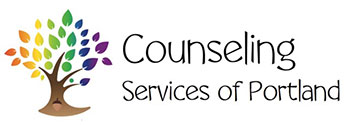
The vast majority of my training and clinical work to date has occurred in medical settings. This has resulted in a profound appreciation for and understanding of the connection between physical and emotional health. I believe in the importance of gathering a thorough medical and mental health history on each client and seeing symptoms as a function of a root issue. I find that interventions that reconnect our bodies and minds can result in profound and lasting change. I arrive to work ready to actively engage with my patients both mentally and physically. After years of spending way too much time in an office chair, I replaced my work wardrobe with running shoes and exercise-friendly attire. When clinically appropriate, I offer “walk and talk” therapy outdoors.
During graduate school and my early years of training, I was steeped in psychodynamic theory and trauma-specific treatment modalities. The teachings inherent in these schools of thought continue to offer me a framework with which to understand the world and adapt to change. Regardless of how symptoms manifest, I view everyone as a product of past and current relationships and experiences and value the lessons offered by my own history and connections.
My initiation into the field of psychology occurred in the wake of enormous trauma. Two days into graduate school I sat in a classroom of near strangers as the news of the 9/11 attacks unfolded. My program was just a few hours north of New York and many of my classmates had friends or family members living or working in the city. While no one in my class lost a loved one on that day, our lives and the lives of everyone we knew were changed forever. Through that shared experience, we established trust, built community and learned important lessons about resilience.
Fast-forward nearly two decades to yet another shared trauma- this time in the form of a worldwide pandemic. Obstructed by masks, isolation, and profound fear, the trust and community that led to healing in the aftermath of 9/11 has been more challenging to establish. Human contact was and in many cases continues to be replaced by virtual classrooms, Zoom meetings and even IPad playdates. Healing has been hard and “go-to” evidence-based treatments have been altogether insufficient at helping us navigate what seems like a perpetual state of uncertainty.
I see this time of shared challenge as an incredible opportunity for growth and learning as well as a calling for clinicians like myself to pivot and innovate. We must be willing to try new interventions or adapt to the old ones and to care for our clients, ourselves, and our world differently.
Over the span of my career, I’ve worked with individuals of all ages and with widely diverse backgrounds. At this juncture, I am working exclusively with adults. I enjoy treating a variety of clinical concerns and have a strong interest in helping to meet the treatment needs of our healthcare workers.
I received my doctorate in psychology from Antioch University in 2006. I have worked in numerous integrated hospital and clinic settings, as well as in private practice. I have extensive experience in psychological assessment, counseling, clinical oversight/supervision and program development/administration. For the past 11 years, I directed a large primary care behavioral health program. I am excited to be returning to full-time clinical practice.
